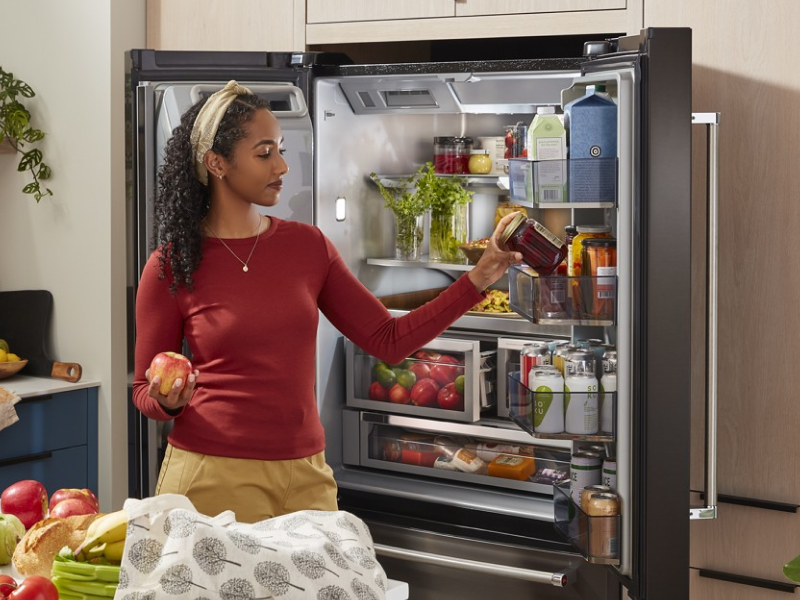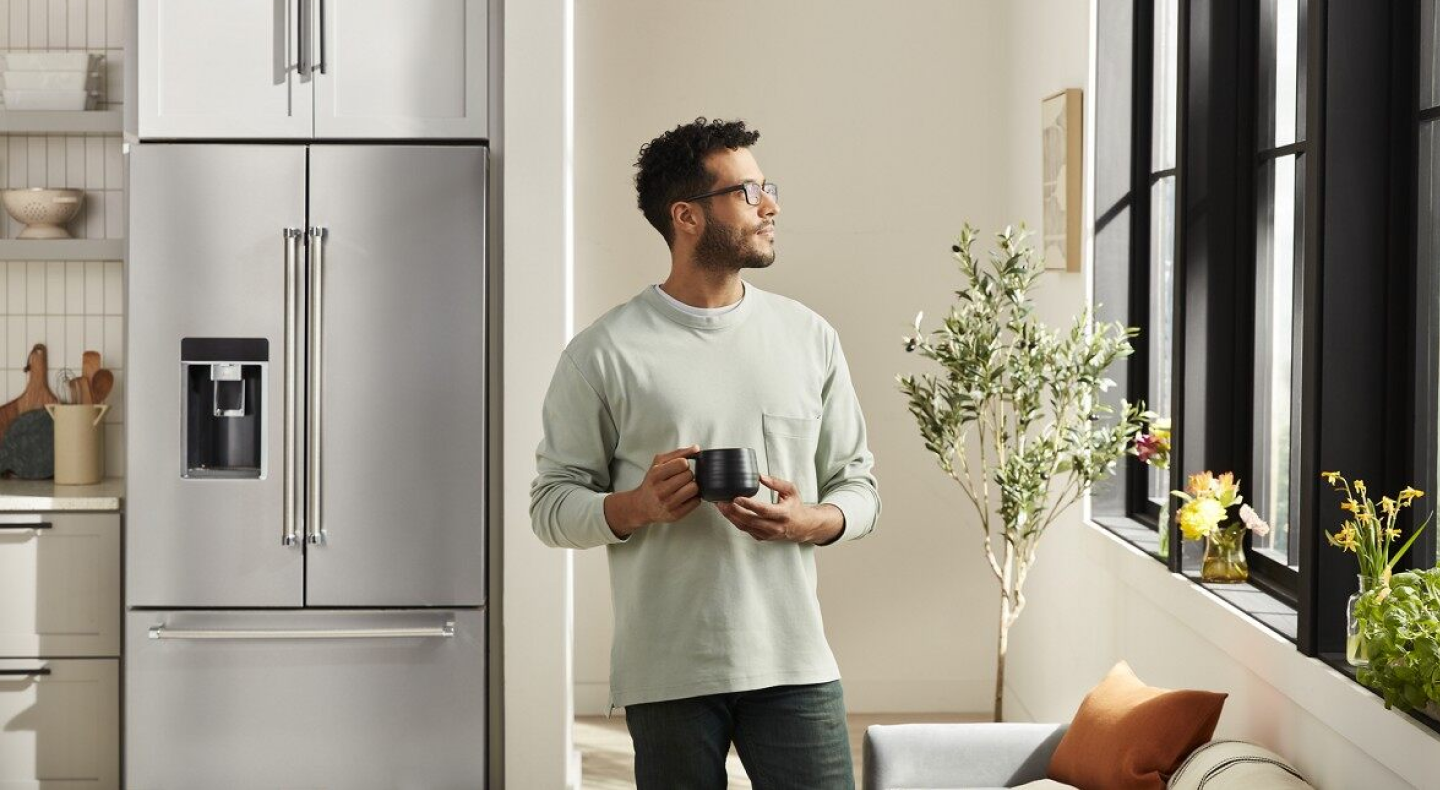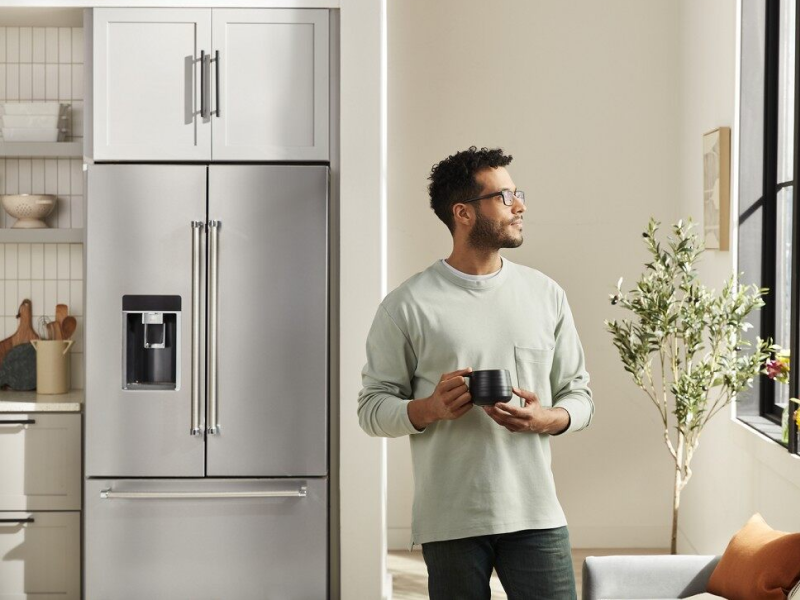
Why is my refrigerator making noise?
Refrigerators and freezers sometimes hum, rattle, buzz and pop as part of their normal operation, but you may not be familiar with every sound you hear coming from your fridge. Knowing what noises to expect and where they come from can help put your mind at ease, so read on to discover 7 common refrigerator sounds and how to know when it’s time to address them.


Is it okay for a fridge to make noise?
Unfamiliar sounds from your refrigerator can be concerning, but they’re often an indicator that everything is operating as it should be. Slight buzzing, clicking, popping, rattling, humming and dripping sounds are all typical in a refrigerator that’s operating smoothly. Functions like water passing through piping, water valves opening or closing, the compressor cooling the unit and the refrigerator defrosting, can all make unique noises as they work to keep your refrigerator running.
When should I worry about my refrigerator’s noises?
Your refrigerator may make a variety of noises as part of normal operation, but that doesn’t mean every sound is typical. If you notice that your refrigerator’s usual noises become amplified over time or suddenly become louder, that may be an indicator that a refrigerator component is in need of maintenance or repair. Consult a certified professional if you’re concerned about a noisy fridge.
Possible refrigerator noises and how to fix them
Whether you hear popping, hissing or rattling coming from your refrigerator, knowing the source of the noise can help you know how to address it. Discover 7 common refrigerator noises below and find out what you can do about them.
1. Why is my refrigerator vibrating?
A vibrating noise coming from your refrigerator may mean that the unit isn’t firmly planted or level with the floor below.
Solution
Remove the base grill from the bottom of the refrigerator, if applicable, then adjust the leveling screws and lower the leveling feet until they sit firmly against the floor. See your owner’s manual for more information about leveling the refrigerator.
2. Why is my refrigerator rattling?
You may hear a rattling from the refrigerator as water passes through the water line, refrigerant flows through the unit or items are placed on top of the refrigerator.
Solution
Rattling isn’t necessarily cause for concern, but you can take measures to reduce the disruption. Fasten any excess tubing behind the refrigerator to the refrigerator cabinet and clear the top of your refrigerator of any items that may contribute to the noise.
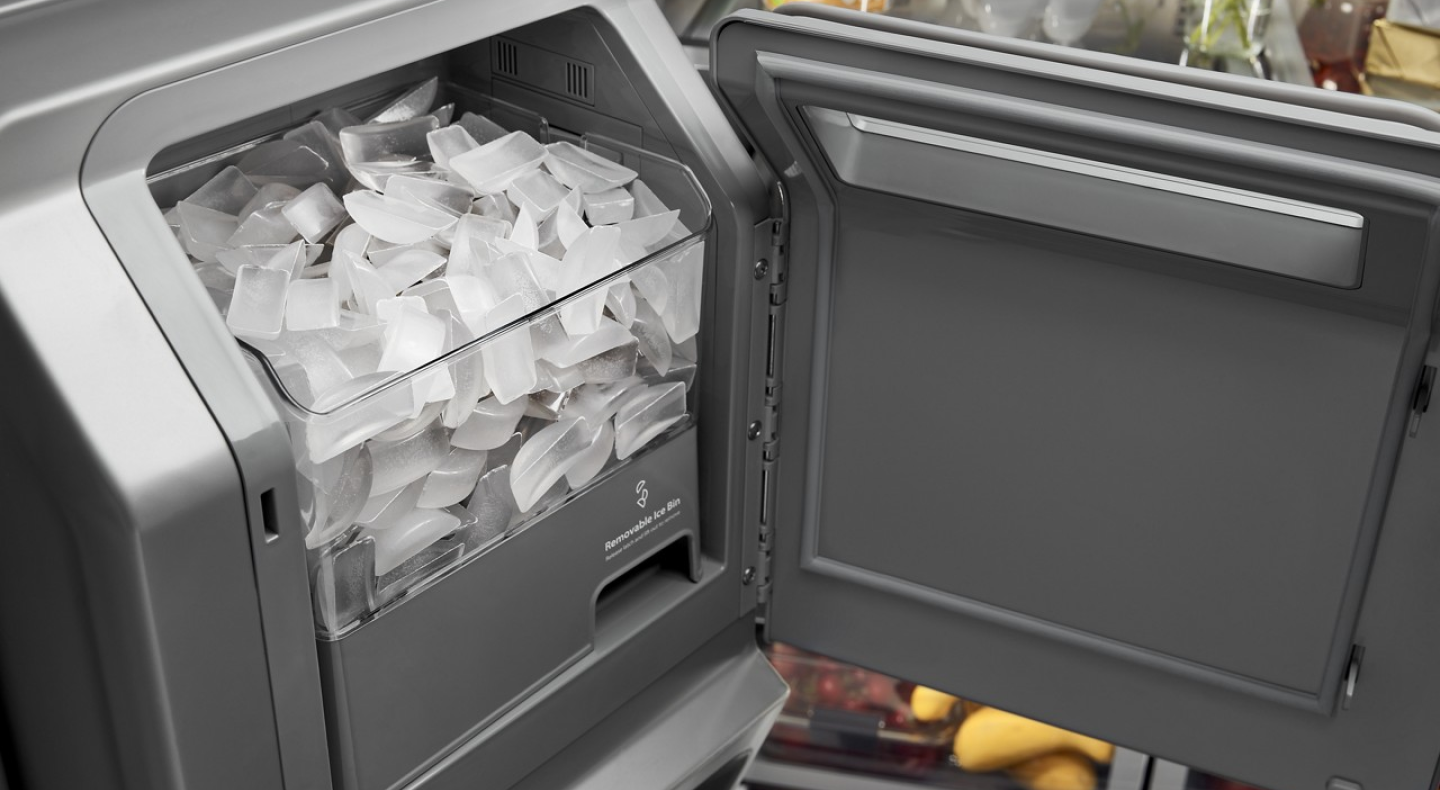

3. Why is my refrigerator buzzing?
Your refrigerator may make a buzzing or clicking sound when the water valve opens and closes to dispense water or fill the ice maker. This noise is part of normal operation and no cause for concern.
Solution
If the noise is disruptive and your refrigerator isn’t hooked up to a water supply, shut the ice maker off to help prevent rattling.
4. Why is my refrigerator making a hissing noise?
You may notice a hissing noise when refrigerant is flowing through the cooling system or when oil is circulating in the refrigerator’s compressor.
Solution
Hissing noises are a normal part of operation and no cause for concern unless they become excessive.
5. Why is my refrigerator making a dripping or gurgling noise?
Dripping noises may spark concerns about a leak, but these noises are often part of normal operation. Your refrigerator may make dripping or gurgling sounds as ice melts during a defrost cycle and water enters the drain pan.
Solution
These noises aren’t likely to be cause for concern, but you should contact a certified technician if you notice water leaking from your refrigerator alongside dripping sounds.
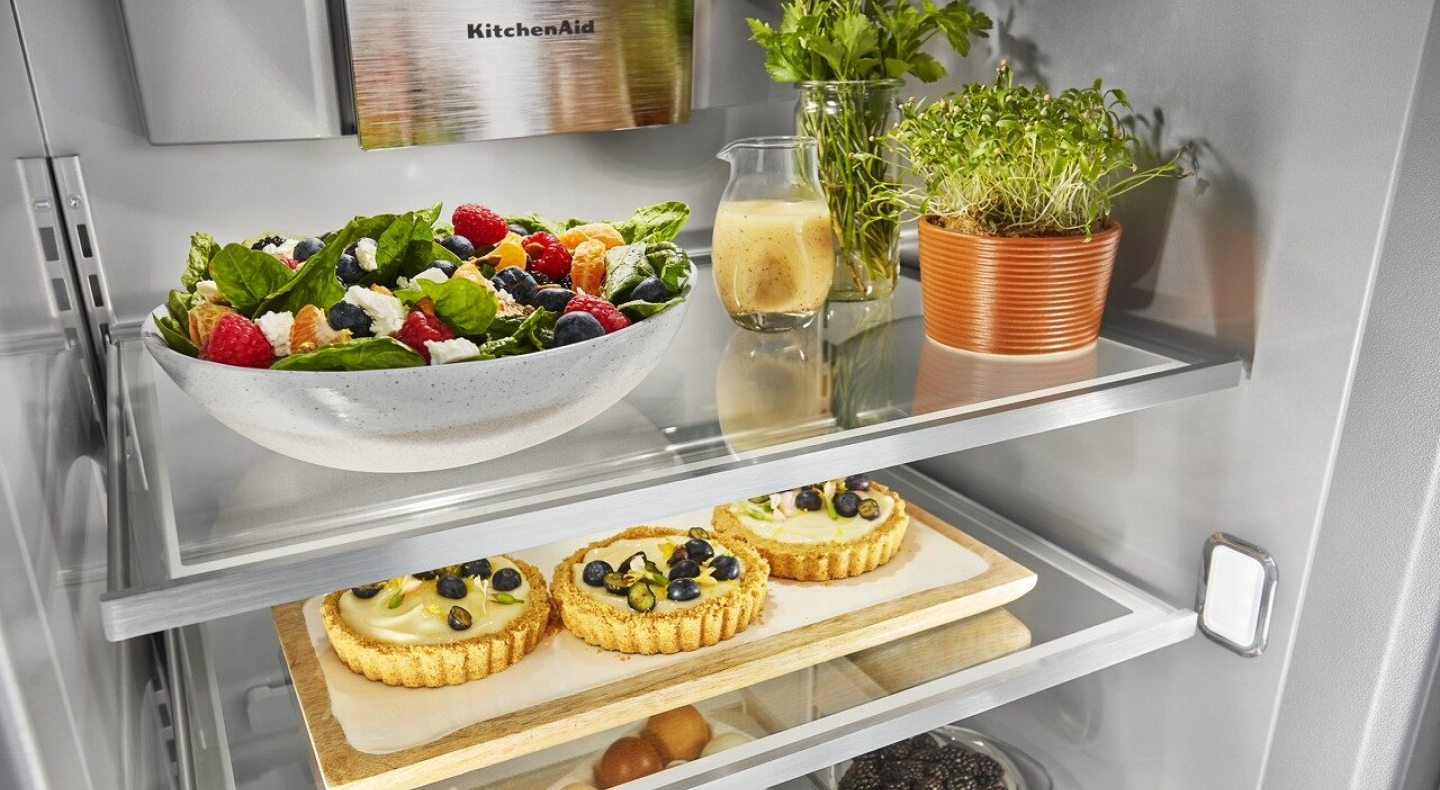

6. Why is my refrigerator making a popping noise?
Your refrigerator may make popping or cracking sounds as the inside walls contract and expand during cooling. You’re more likely to notice these sounds during your refrigerator’s initial cooling period.
Solution
Popping due to cooling is a normal occurrence and not cause for concern.
7. Why is my refrigerator making a pulsating or humming noise?
You may hear a humming noise when the fan and compressor adjust to optimize your refrigerator’s performance during normal use. These noises might occur more often if the refrigerator is in a particularly warm environment, food was recently added or the doors were left open.
Solution
Humming and pulsating noises are part of normal operation and not cause for concern.
Most of the noises listed above are normal or can be handled with slight adjustments at home, but it’s best to consult a professional for any sounds that get significantly louder or last longer than usual.
Why is my freezer making noise?
Noises from the freezer can stem from a few different sources, but most are simply part of normal operation. Dripping or gurgling sounds may result from melting ice during a defrost cycle, while cracking sounds can be due to normal expanding and contracting from the freezer’s inside walls as temperature fluctuates. You may also notice the clacking sound of the icemaker producing and dispensing ice. If your freezer is making unusually loud clicking or buzzing sounds, it could be due to a faulty evaporator fan or dirty condenser coils that cause your freezer to work harder to cool. Contact a licensed professional if you suspect your freezer’s noises are due to component malfunctions.
Fridge care & maintenance tips
Regular maintenance like cleaning your refrigerator and replacing the filter can help keep your refrigerator running smoothly. Follow the maintenance tips below to get the most out of your refrigerator.
Change your refrigerator’s water filter every six months to help prevent build-up of dirt and debris.
Clean out your ice maker roughly every six months, or more often if you use it frequently. You can typically hand wash your ice maker parts with warm water and mild soap.
Clean out your refrigerator and freezer frequently to help reduce odors that can circulate during automatic defrost cycles.
- Routinely inspect components like the refrigerator’s gasket seal to identify tears or dirt build-up that may cause your refrigerator to struggle with temperature regulation.
- Repair your refrigerator light, as needed, if it is not turning on.
When issues arise that you can’t resolve on your own, contact a qualified professional for help diagnosing and fixing your refrigerator. For KitchenAid® refrigerators, you can schedule a service visit and troubleshoot refrigerator problems through the KitchenAid customer service portal.
Shop KitchenAid® refrigerators
Refrigerators from KitchenAid brand are loaded with flexible storage options that make it easy to find ingredients and keep food fresh. Select models include the SatinGlide® Crispers and Pantry so drawers open and close in one smooth motion, no matter what’s loaded inside. Plus, select KitchenAid® refrigerators feature the PrintShield™ Finish that resists fingerprints and smudges so you can spend less time cleaning up and more time making.

